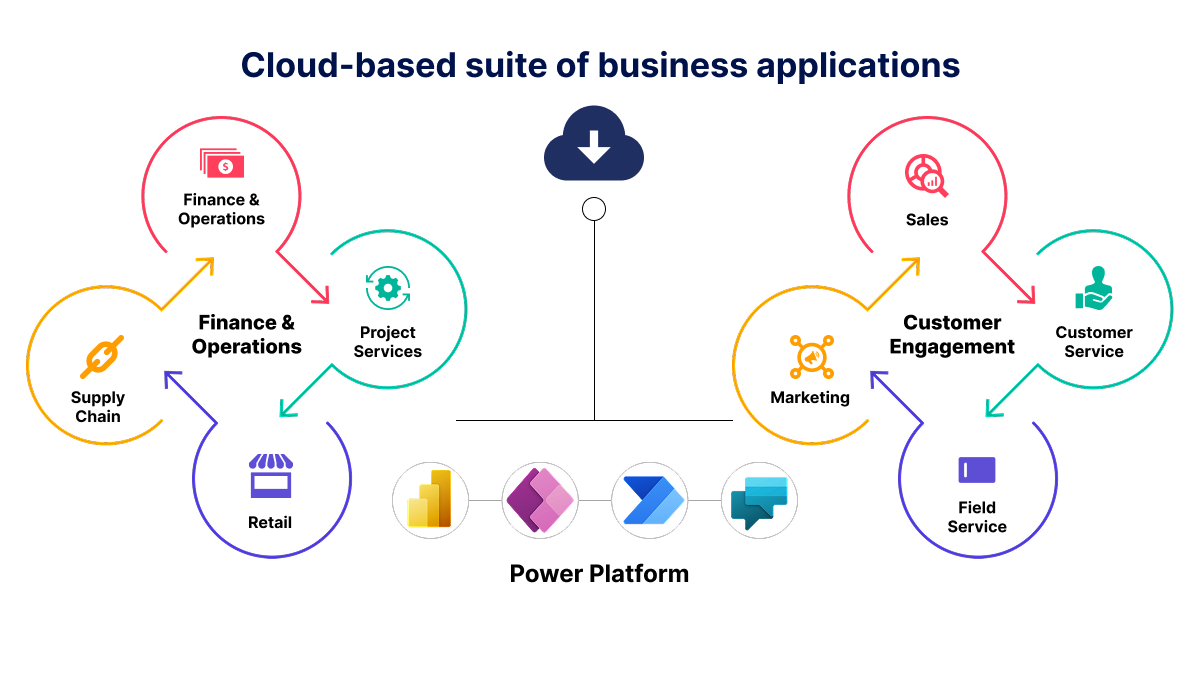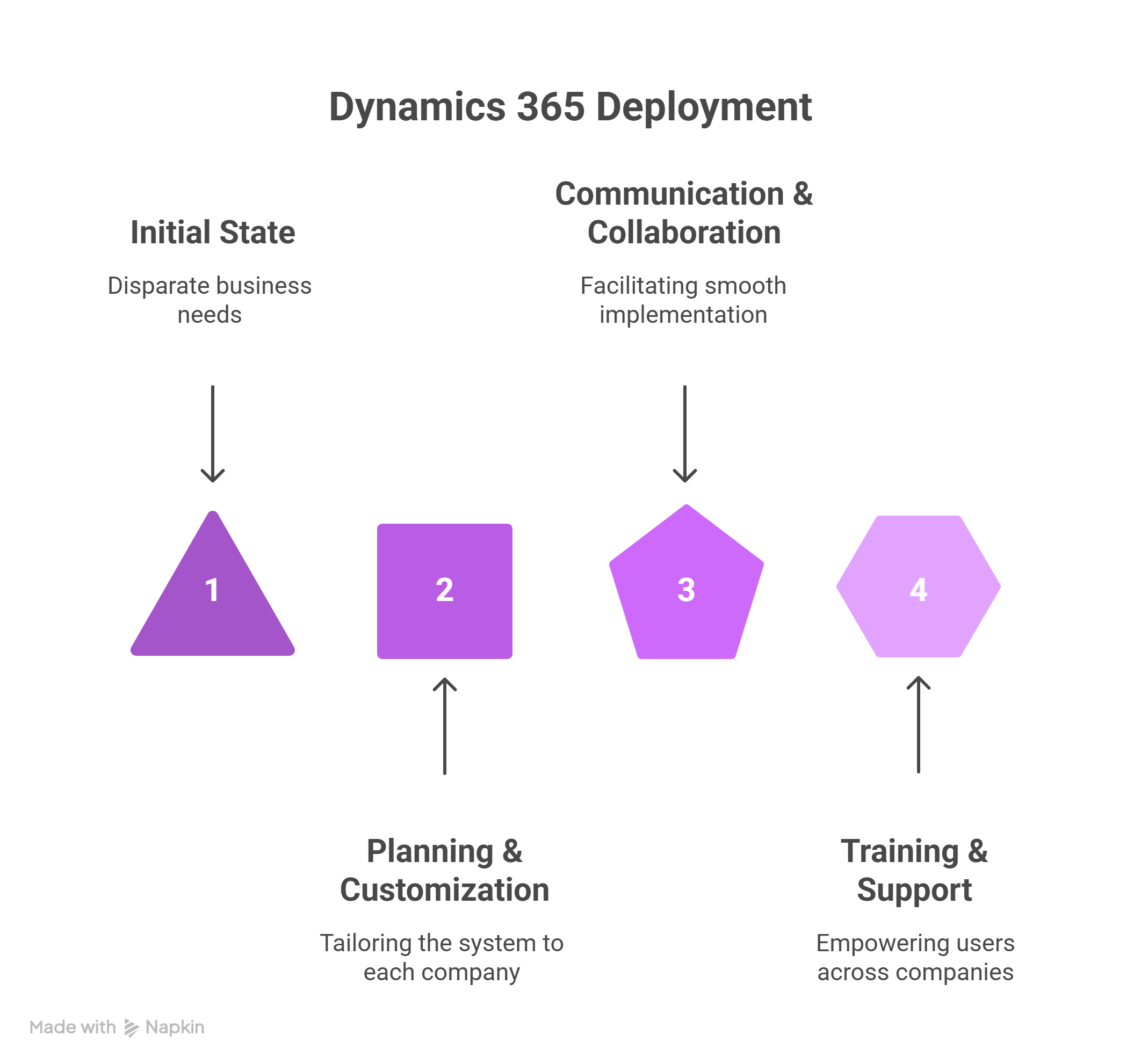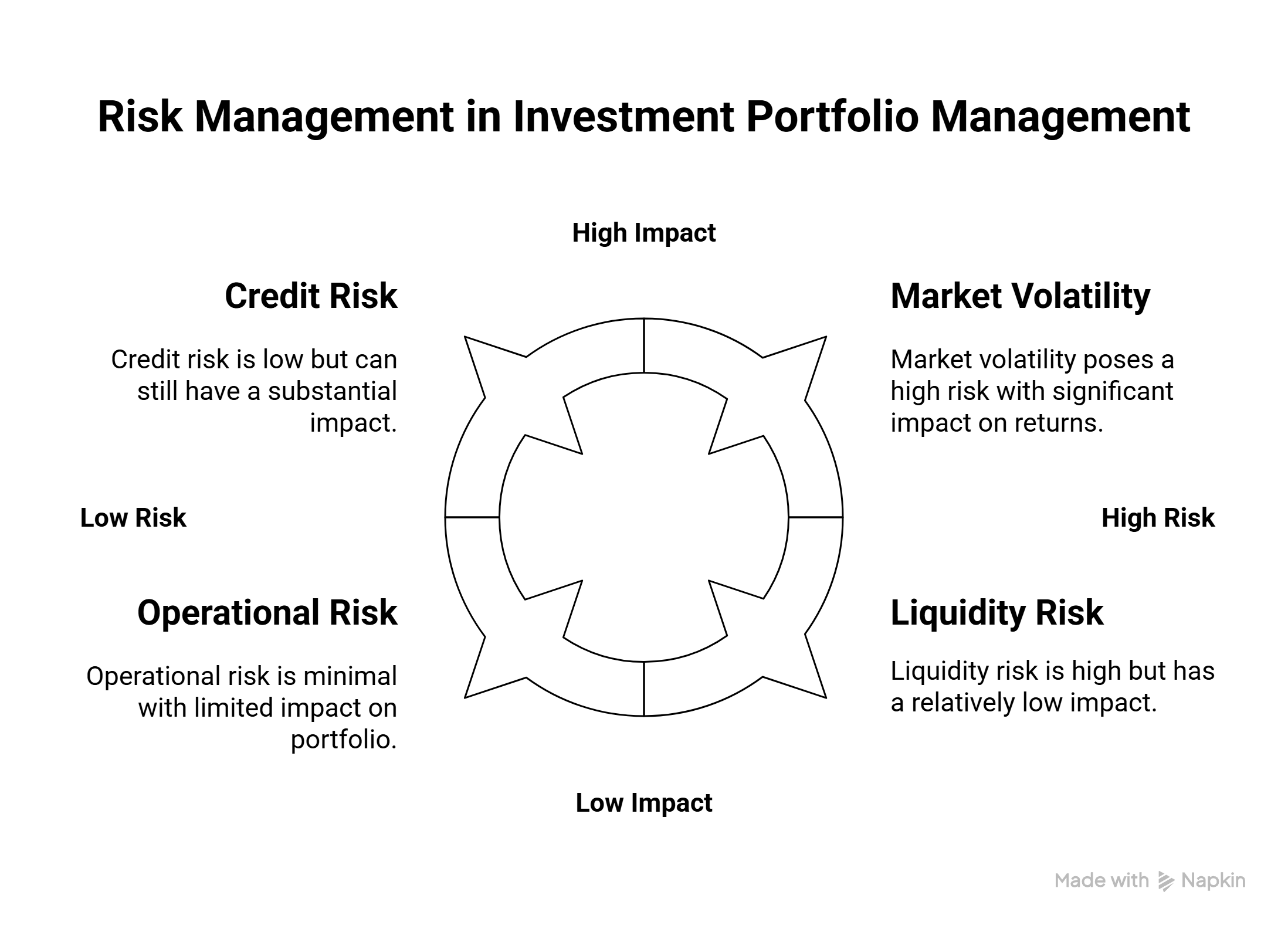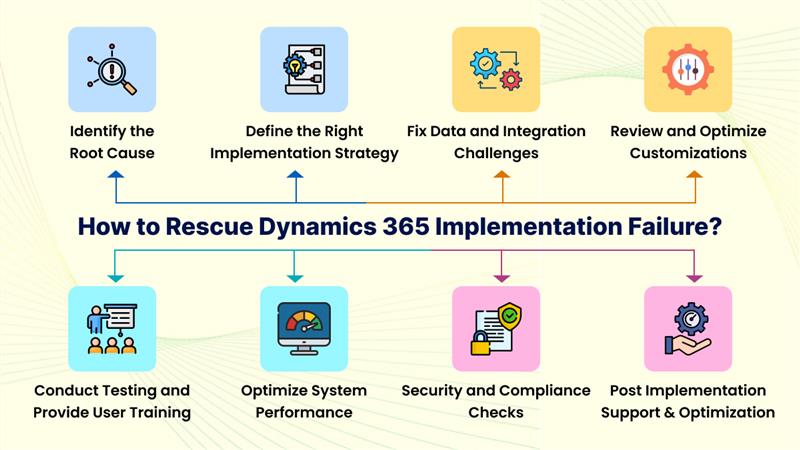Expert Guide for Dynamics 365 Implementation

Strong 8k brings an ultra-HD IPTV experience to your living room and your pocket.
What is Dynamics 365 Implementation?
Dynamics 365 implementation refers to setting up Microsoft’s cloud applications to improve an organization’s business functions. This includes customizing the system to fit specific business requirements, integrating it with existing systems, migrating data, and training users for effective system adoption. Successful implementation ensures businesses can use Dynamics 365 to automate processes, gain deeper insights, and improve customer service.
Why is Implementation Important?
Without a well-structured implementation plan, even the most powerful tools like Dynamics 365 can fail to meet business goals. A proper implementation ensures:
Seamless integration with current workflows.
Accurate data migration and system configuration.
Employee adoption of the system.
Improved business intelligence and reporting.
Types of Dynamics 365 Solutions
Dynamics 365 offers several solutions designed to cater to different business needs. Organizations can choose from various solutions based on their requirements, ranging from standard offerings to industry-specific configurations.
Standard Solutions
The core modules of Dynamics 365 include:
Finance and Operations: Streamlines financial management, accounting, and operational processes.
Sales: Helps businesses manage leads, opportunities, and customer relationships.
Customer Service: Aids in providing better customer support by managing service requests, complaints, and customer interactions.
Marketing: Helps businesses to build and manage marketing campaigns and customer journeys.
Each of these solutions can be used independently or integrated to drive seamless workflow across different departments.
Industry-Specific Solutions
In addition to the core modules, Dynamics 365 also offers industry-specific solutions for sectors like retail, manufacturing, government, and healthcare. For example, in retail, Dynamics 365 Commerce combines the best of e-commerce, customer service, and business intelligence.
Custom Solutions
In some cases, businesses may need highly customized solutions. Dynamics 365 allows organizations to create custom applications and workflows tailored to their unique requirements. Using tools like Power Apps, businesses can extend the platform to meet niche needs without resorting to complex code-based customizations.
ISVs in Dynamics 365
An Independent Software Vendor (ISV) develops additional software applications that integrate seamlessly with Dynamics 365. These applications offer specialized functionality beyond the default offerings of the platform. like Dynamic Netsoft 6 ISV, we can see a Separate Article about Dynamics 365 ISVs and Types of Dynamics 365 Partners.
Expert Guide for Dynamics 365 Implementation
The implementation of Dynamics 365 is a multi-step process that requires careful planning and execution. Below are the key steps involved in implementing the system:
Step 1: Assessment & Planning
Before implementation begins, it’s crucial to assess business needs and define goals. This involves identifying:
Key stakeholders.
Desired outcomes.
KPIs to track system performance and success.
Step 2: Solution Design
Based on the requirements gathered, businesses will need to decide on the Dynamics 365 modules that best align with their goals. Customizations may also be necessary at this stage, such as adapting workflows, business rules, and user interfaces.
Step 3: Customization & Configuration
Once the solution design is complete, customizing and configuring the system to meet business needs is the next step. This includes setting up dashboards, defining roles and permissions, and configuring business processes.
Step 4: Data Migration
Migrating clean and accurate data is essential for a successful implementation. During this phase, organizations must map data from legacy systems to the new Dynamics 365 platform, ensuring no data loss or discrepancies.
Step 5: Integration
In most cases, Dynamics 365 needs to integrate with existing systems, such as finance software, CRM tools, and inventory management platforms. Integration is key to ensuring that the data flows seamlessly between applications.
Step 6: Testing
Testing is vital to ensure that everything functions as expected. This phase includes User Acceptance Testing (UAT) to validate the system’s functionality, user-friendliness, and compliance with business needs.
Step 7: Training & Change Management
For a smooth transition, employees must be trained on how to use the new system. Training sessions should focus on critical functionalities, and ongoing support should be available to address any challenges faced during the early adoption phase.
Step 8: Go-Live & Post-Go-Live Support
Once the system is tested and ready, it’s time to go live. However, post-go-live support is essential to resolve any issues that arise and ensure the system is optimized for long-term use.
Can I Self-Partner with My Dynamics 365 Implementation?
Many businesses wonder if they can handle the Dynamics 365 implementation in-house without the assistance of an external partner. The answer depends on the complexity of your needs and the expertise available within your organization.
In-House Implementation
If you have an experienced IT team with knowledge of Dynamics 365 or similar platforms, you may be able to undertake the implementation on your own. However, even in this case, consider seeking advice from experts or a Microsoft-certified partner for critical tasks such as customizations and complex integrations.
Partnering with Experts
For larger or more complex implementations, partnering with a Microsoft Dynamics 365 Partner may be necessary. These certified consultants can:
Assist with design and customization.
Offer expertise in industry-specific solutions.
Ensure proper integration and data migration.
Choosing the right Dynamics 365 partner is crucial — look for a partner with relevant experience, certifications, and a strong track record, and even if you Choose the Wrong Dynamics 365 Partner, don't worry I have already written a Blog about it and a Solution for it.
Conclusion
Implementing Dynamics 365 is a major step, but with clear goals and the right support, businesses can boost efficiency, enhance customer service, and gain valuable insights. A structured approach and ISV solutions ensure a smooth, successful adoption for long-term growth.
Note: IndiBlogHub features both user-submitted and editorial content. We do not verify third-party contributions. Read our Disclaimer and Privacy Policyfor details.







![What’s New in Dynamics 365 Implementation? [2025 Update Overview]](https://indibloghub.com/public/images/courses/686d1a9112af2552_1751980689.jpg)